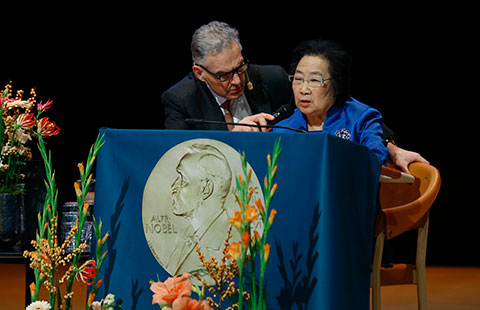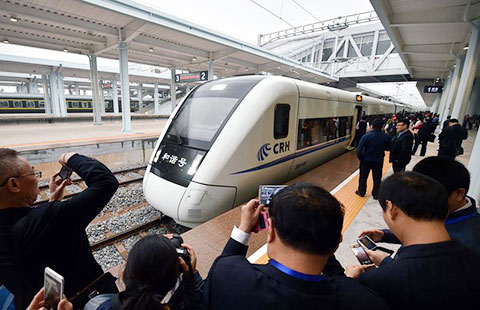Li reiterates principles for development
By ZHENG YANGPENG (China Daily) Updated: 2016-01-01 07:36Premier stresses key need for structural reform through five-year blueprint
Premier Li Keqiang on Thursday urged the importance of structural reform in the strategic development blueprint of the 13th Five-Year Plan (2016-20).The first draft of the plan was drawn up by officials from the National Development and Reform Commission, China's top economic planning agency.
The officials are working extensively to formulate an outline for the plan, which will be reviewed and passed in March, during the annual session of the National People's Congress, the nation's top legislature.
In early December Li held a symposium to seek advice about the outline from both domestic and foreign experts.
Li reiterated the five principles for the outline agreed at a top leadership meeting in November: development that is innovative, coordinated, green, open, and shared by all.
He said the outline should highlight the ethos of "pushing through structural reform" and lay the foundation for "medium and high-speed growth" in the next five years.
"Structural reform should work on both the supply side as well as the demand side. In particular, China should tackle the problem that current supply can't match the shifting demand," he said.
On the "supply side", he emphasized the concept of "innovation-driven development", "mass innovation", "mass entrepreneurship" as well as the enhancing of total-factor productivity, which refers to a variable that accounts for effects in total output not caused by traditionally measured inputs of labor and capital, but the progress of technology and human capital.
China's top leaders have put forward the concept of "supply-side reform" as an alternative to the traditional Keynesian demand-side management.
The new measures include cutting housing inventories and business costs, reducing government debt and eliminating superfluous industrial capacity, according to the recently concluded Central Economic Work Conference.
Cai Fang, vice-president of the Chinese Academy of Social Sciences, said the emphasis on "total-factor productivity" is a nod to the fact that the cheap labor supply, as well as capital and land supply, belongs to the past.
The only way toward the next phase of development is through innovation, technology upgrading and reform that dismantles institutional barriers, he said.
- President sets out vision for 2016
- 2nd aircraft carrier confirmed
- New year sees clear horizon
- Top planner targets 40% cut in PM2.5 for Beijing-Tianjin-Hebei cluster
- Yearender: Predictions for 2016 through 20 questions
- Clamping down to clean up the air
- Hotline links Taiwan and the mainland
- No new year's celebration in Shanghai one year after stampede
- Dictionary of Xi Jinping's new terms
- Freed death row inmate is compensated







